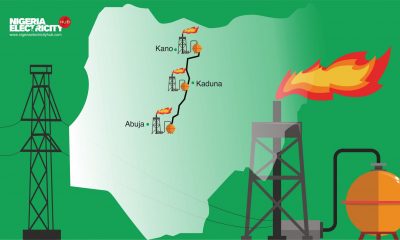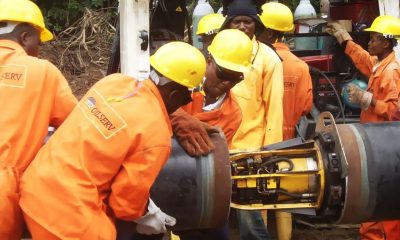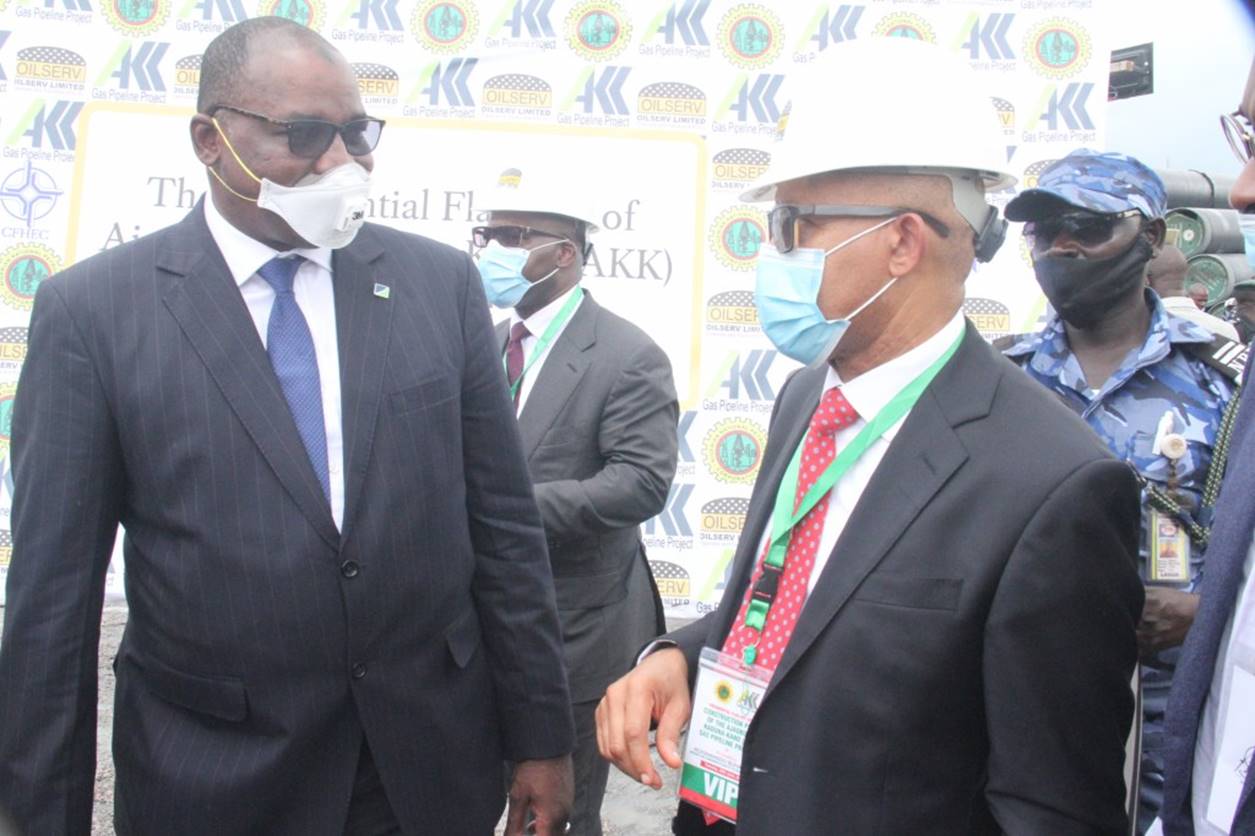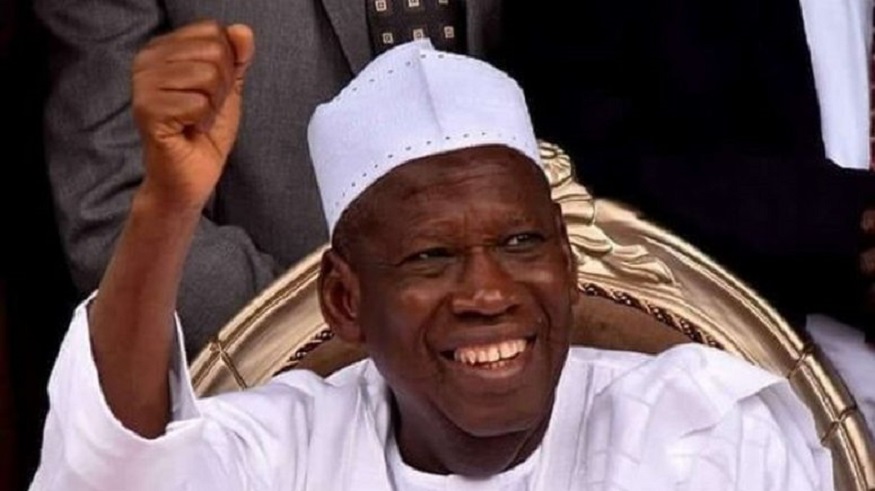General
Kano Approves Siting of AKK Gas Pipeline Project in Tamburawa
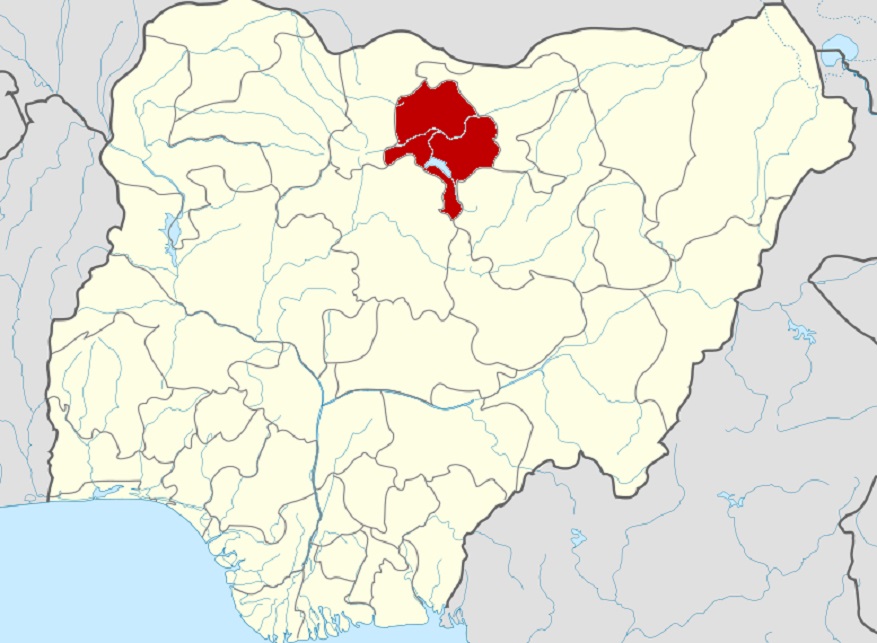
By Adedapo Adesanya
The Kano State Government has approved Tamburawa in Dawakin Kudu Local Government Area, along Zaria Road as a planning location for the siting of the proposed gas industrial layout under the Nigeria National Petroleum Corporation (NNPC’s) Ajaokuta-Kaduna-Kano (APP) pipeline project.
This was disclosed by the state Commissioner for Information, Mr Muhammad Garba, after the State Executive Council meeting.
He explained that the approval was given to the state government NNPC-AKK Gas Pipeline Project Delivery and Gas Industrialization Committee (KNSG-PDIC) to set up its planning location at Tamburawa adjacent to Challawa Water Works where the Kano/AKK Terminal Gas station is proposed to be built.
Mr Garba stated that while a draft of the proposed layout has been produced, the council directed the state Bureau for Land Management to liaise with the committee and come up with final documents for the new industrial layout.
He also revealed that the council has ratified the award of contract for the reconstruction of Challawa Industrial Layout Road network at the cost of N393,237,697.00 million.
He pointed out that the road is of vital economic importance to the economy of the state in view of its proximity to the ongoing construction of Dala Inland Dry Port at Zawachiki that is expected to impact the development of manufacturing and industrial activities when it commences operation.
The council, he added, has given approval for the release of N23, 883, 464.45 million to the state Radio Corporation for the supply and installation of dehydrators, binary power supply and exciter for its transmitters at Jogana Transmission Station.
Mr Garba noted that the two components, which are essential items for the effective functioning of the transmission, have all gone faulty beyond repairs.
The Commissioner also disclosed that approval has also been given by the council for the payment of N80, 000.000.00 million one year allowances from a backlog of four years’ bursary allowances to the 59 MBBS, B.sc Masters and PhD. Kano state-sponsored students at the Near East University, Cyprus.
He said the council also directed the government verification team to authenticate the students and their academic performance before the implementation of a recommendation for instalment payment of the cumulative sum of N1, 123, 184, 893.5 billion as of November 26, 2020, to the university in two tranches of 50 per cent.
Mr Garba further revealed that with the setting in of the rainy season, the council has approved the sum of N85, 230, 234.00 million for the conduct of the annual drainage clearance exercise in the metropolis.
The Commissioner said the measure is to avert flooding from siltation of drainages as a result of indiscriminate waste disposal by people which affect the free flow of water, posing threat to life and property.
He said the council has also approved the substitution of the ministry of environment’s nursery located at Rano town to a new site within the local government.
The Commissioner said the decision was informed by the fact that the nursery has been inactive for decades due to lack of reliable source of water supply, persistently being encroached by settlement and request from member representing Rano constituency at the state House of Assembly to construct an ultra-modern Jumu’at Mosque and Islamiyya school at the location.
The council, he said has given approval for the payment of N32, 610, 000.00 as bereaved allowances to 664 deceased civil servants of various grades in the state who passed away from 2017 to February 2021.
He said payment of bereaved family allowance due to their families/heirs for the civil servants who died in active service is in line with extant civil service rule.
The state government also announced that as part of efforts to improve health care delivery services, the council has given approval for the provision of uniforms (yards) for 17, 480 staff of various health cadres at the cost of N193, 639, 136.71million.
He listed some of the beneficiaries of the two sets of uniforms to be provided to include doctors, nurses, midwives, laboratory scientists, technology/technical assistants, image scanning/radiographers/x-ray technicians, physiotherapist, a technical assistant, dental therapist/technical assistant, dietician/nutritionist, among others.
The Commissioner also indicated that the council has approved contract review from N331, 889, 971.51 million to N370, 773, 987.95 million based on a new harmonized rate for general renovation works at the National Youth Service Corps (NYSC) Permanent Orientation Campsite, Kusalla Dam in Karaye local government area.
He said the contract was initially awarded in 2016 and as work progresses, prices of materials and labour charges skyrocketed which the contractor lamented, adding that the council has given approval for the state government to partner with the Sugarcane Growers, Processors and Marketers Association of Nigeria for the cultivation of sugarcane in commercial quantity in the country.
He said the measure would go a long way in creating young farmers and entrepreneurs which is in line with the state government policy of skills acquisition programme that will uplift thousands of youth out of poverty and increase revenue generation for the state.
The commissioner also announced approval by the council for additional works in the contract for the upgrading of Gidan Shettima to serve as Emirate Council Headquarters for the five Emirs in the state at the cost of N49,893,466,00 million.
The additional work, he said, include the provision of office of the chairman, construction of additional floor to accommodate offices for four Emirs, increase the size of the council chamber and public gallery to adequately accommodate expanded members of the council and construction of a mosque and car park.
The Commissioner disclosed that the council has ratified the approval for the renovation and upgrading of Dawakin Tofa District Head Palace in Dawakin Tofa local government area.
He said the contract for the renovation exercise, which was initially awarded at the cost of N78, 801, 280.82 million, had to be revised to N99,340,773.87 million as a result of some additional vital works introduced that included among others, main Fada, gallery, Hakimi wing, VIP guest wing, new wall, Shamakhi, Generator house.
General
Nigerian Bottling Company Bridges Education, Employability Gap

By Modupe Gbadeyanka
The Nigerian Bottling Company (NBC) has reaffirmed its determination to bridge the gap between education and employability in the country by sustaining its flagship Youth Empowered (YE) programme.
This initiative provides hands-on learning, real-world insights, and access to career-shaping opportunities to young Nigerians.
The 2026 edition of the scheme commenced on February 2 at the University of Lagos (UNILAG), with participants mainly young people between the ages of 16 and 35.
A statement from the organisation said this year’s rollout will expand to more tertiary institutions, including the Federal University of Technology, Akure (FUTA). This follows a successful 2025 tour that reached seven cities across the country, including Makurdi, Jos, Benin, Kaduna, Asaba, Akure, and Port Harcourt.
Participants in the 2026 programme will receive training across key modules designed to support personal, professional, and business growth, including Business Life Skills, Adaptability and Resilience, Financial Literacy, Customer Service and Communication, Sales and Negotiation Skills, and Workplace Ethics.
The sessions will also feature breakout workshops on Business Planning, Project Management, and Time Management, alongside the Director’s Grant Pitch Competition, where participants can pitch their ideas for a chance to win business funding.
In addition to skills development, NBC’s People and Culture team will be present throughout the programme to identify outstanding talent for future opportunities within the organisation, further strengthening the connection between learning, employment, and long-term career growth.
One of the participants at the UNILAG training, Waliat Adedogun, who received a cash grant through the Director’s Grant Pitch Competition to support her small business, said: “Youth Empowered gave me more than training; it gave me clarity and confidence. Winning the grant means I can finally take my business idea from a dream into something real. I now feel prepared to build, grow, and create opportunities not just for myself, but for others too.”
Since its launch in 2017, the scheme has impacted more than 70,000 young Nigerians, equipping participants with practical skills, confidence, and exposure needed to succeed in today’s dynamic workplace and entrepreneurial landscape.
This year’s programme is being delivered in collaboration with Fate Foundation as the implementing partner, with funding support from The Coca-Cola HBC Foundation.
Last year, 10 beneficiaries were selected for six-month paid internships across NBC locations in Lagos, Ibadan, Asejire, and Challawa, gaining direct industry exposure.
Additionally, three outstanding participants received sponsorship for an all-expenses-paid intensive culinary training programme and were awarded N1 million each to support the launch of their businesses.
General
INEC Fixes February 20 for 2027 Presidential, NASS Elections

By Modupe Gbadeyanka
The 2027 presidential and National Assembly elections will take place on Saturday, February 20, the Independent National Electoral Commission (INEC) has revealed.
In a notice for the 2027 general polls issued on Friday, the electoral umpire also disclosed that the governorship and state assembly elections for next year would be on Saturday, March 6.
Speaking at a news briefing in Abuja today, the chairman of INEC, Mr Joash Amupitan, expressed the readiness of the commission to conduct the polls next year, which is 12 months away.
The timetable issued by the organisation for the polls comes when the federal parliament has yet to transmit the amended electoral bill to President Bola Tinubu for assent.
This week, the Senate passed the electoral bill, reducing the notice of elections from 360 days to 180 days, while the transmission of results was mandated with a proviso.
Recall that on February 4, INEC said it was ready to go ahead with preparations for the elections despite the delay in the passage of the amended electoral law of 2022.
General
NGIC Pipeline Network to Experience 4-Day Gas Supply Shortage

By Modupe Gbadeyanka
The pipeline network of the NNPC Gas Infrastructure Company Limited (NGIC) will witness a temporary reduction in gas supply for four days.
This information was revealed by the Chief Corporate Communications Officer of the Nigerian National Petroleum Company (NNPC) Limited, Mr Andy Odeh, in a statement on Thursday night.
A key supplier of gas into the NGIC pipeline network is Seplat Energy Plc, a joint venture partner of the state-owned oil agency.
It was disclosed that the facility would undergo routine maintenance from Thursday. February 12 to Sunday, February 15, 2026.
The NNPC stated that, “This planned activity forms part of standard industry safety and asset integrity protocols designed to ensure the continued reliability, efficiency, and safe operation of critical gas infrastructure.”
“Periodic maintenance of this nature is essential to sustain optimal system performance, strengthen operational resilience, and minimise the risk of unplanned outages,” it added.
“During the four-day maintenance period, there will be a temporary reduction in gas supply into the NGIC pipeline network. As a result, some power generation companies reliant on this supply may experience reduced gas availability, which could modestly impact electricity generation levels within the timeframe.
“NNPC Ltd and Seplat Energy are working closely to ensure that the maintenance is executed safely and completed as scheduled. In parallel, NNPC Gas Marketing Limited (NGML) is engaging alternative gas suppliers to mitigate anticipated supply gaps and maintain stability across the network,” the statement further said.
“Upon completion of the maintenance exercise, full gas supply into the NGIC system is expected to resume promptly, enabling affected power generation companies to return to normal operations,” it concluded.
-

 Feature/OPED6 years ago
Feature/OPED6 years agoDavos was Different this year
-
Travel/Tourism10 years ago
Lagos Seals Western Lodge Hotel In Ikorodu
-

 Showbiz3 years ago
Showbiz3 years agoEstranged Lover Releases Videos of Empress Njamah Bathing
-

 Banking8 years ago
Banking8 years agoSort Codes of GTBank Branches in Nigeria
-

 Economy3 years ago
Economy3 years agoSubsidy Removal: CNG at N130 Per Litre Cheaper Than Petrol—IPMAN
-

 Banking3 years ago
Banking3 years agoSort Codes of UBA Branches in Nigeria
-

 Banking3 years ago
Banking3 years agoFirst Bank Announces Planned Downtime
-

 Sports3 years ago
Sports3 years agoHighest Paid Nigerian Footballer – How Much Do Nigerian Footballers Earn


